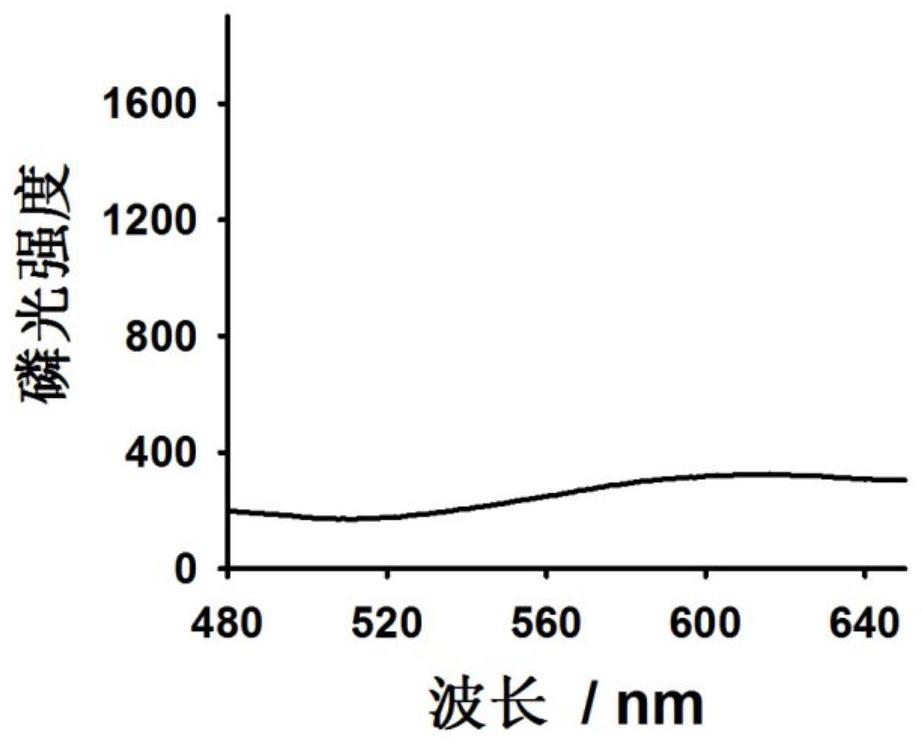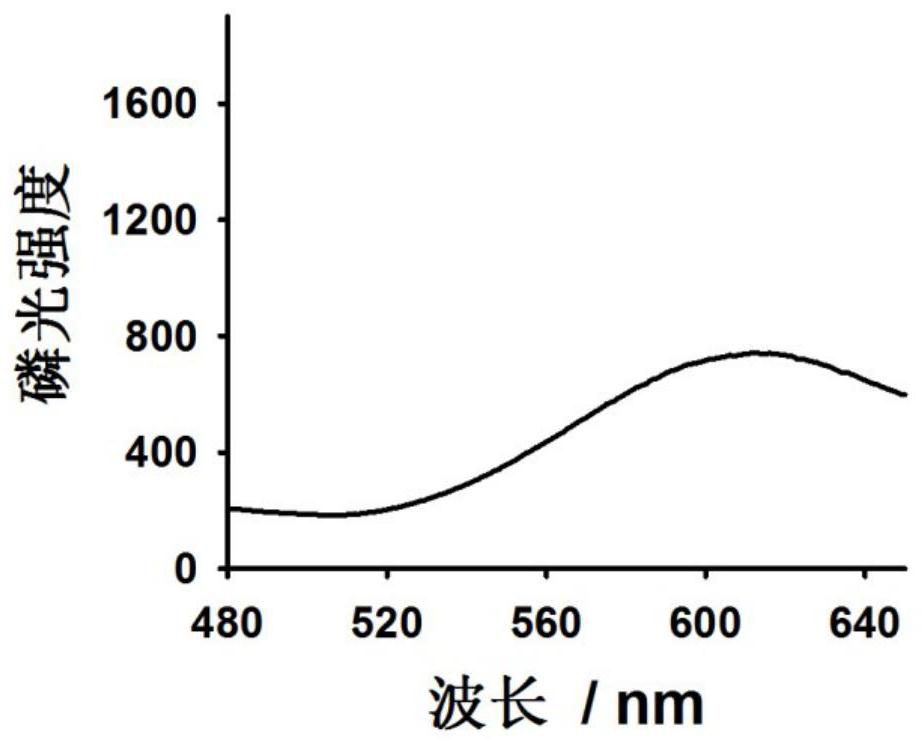A method for aluminum ion-induced phosphorescent copper nanocluster aggregation-enhanced fluorescence detection and its application
A copper nano-cluster and fluorescence-enhancing technology, applied in the field of biosensing, can solve the problems of low detection limit, complicated operation, high price, etc., and achieve the effects of fast reaction, simple synthesis and reduced competition effect.
- Summary
- Abstract
- Description
- Claims
- Application Information
AI Technical Summary
Problems solved by technology
Method used
Image
Examples
Embodiment 1
[0057] Embodiment 1: Get DMF and deionized water configuration 5mL mixed solution in 20mL glass bottle, DMF / H 2 O volume ratio is 2:1. Prepare 0.025M glutathione solution, add 200 μL of glutathione solution to the above mixed solution, shake gently until uniform, and the concentration of GSH in the mixed solution is 1 mM. Then configure 1M copper sulfate solution, take 5 μL of copper sulfate solution into the glass bottle, so that the concentration of copper ions in the mixed solution is 1000 μM. Put the glass bottle into a shaking box at 20°C, stir and shake at a slow speed for 1 minute to form phosphorescent copper nanoclusters. The prepared copper nanoclusters were measured by a fluorescence spectrophotometer to draw a fluorescence curve, such as figure 1 .
Embodiment 2
[0058] Embodiment 2: Get DMF and deionized water configuration 5mL mixed solution in 20mL glass bottle, DMF / H 2 O volume ratio is 2:1. Prepare 0.05M glutathione solution, add 200 μL of glutathione solution to the above mixed solution, shake gently until uniform, and the concentration of GSH in the mixed solution is 2 mM. Then configure 1M copper sulfate solution, take 5 μL of copper sulfate solution into the glass bottle, so that the concentration of copper ions in the mixed solution is 1000 μM. Put the glass bottle into a shaking box at 20°C, stir and shake at a slow speed for 1 minute to form phosphorescent copper nanoclusters. The prepared copper nanoclusters were measured by a fluorescence spectrophotometer to draw a fluorescence curve, such as figure 2 .
Embodiment 3
[0059] Embodiment 3: get DMF and deionized water configuration 5mL mixed solution in 20mL glass bottle, DMF / H 2 O volume ratio is 2:1. Prepare 0.1M glutathione solution, add 200 μL of glutathione solution to the above mixed solution, shake gently until uniform, and the concentration of GSH in the mixed solution is 4 mM. Then configure 1M copper sulfate solution, take 5 μL of copper sulfate solution into the glass bottle, so that the concentration of copper ions in the mixed solution is 1000 μM. Put the glass bottle into a shaking box at 20°C, stir and shake at a slow speed for 1 minute to form phosphorescent copper nanoclusters. The prepared copper nanoclusters were measured by a fluorescence spectrophotometer to draw a fluorescence curve, such as image 3 .
PUM
 Login to View More
Login to View More Abstract
Description
Claims
Application Information
 Login to View More
Login to View More - R&D
- Intellectual Property
- Life Sciences
- Materials
- Tech Scout
- Unparalleled Data Quality
- Higher Quality Content
- 60% Fewer Hallucinations
Browse by: Latest US Patents, China's latest patents, Technical Efficacy Thesaurus, Application Domain, Technology Topic, Popular Technical Reports.
© 2025 PatSnap. All rights reserved.Legal|Privacy policy|Modern Slavery Act Transparency Statement|Sitemap|About US| Contact US: help@patsnap.com



